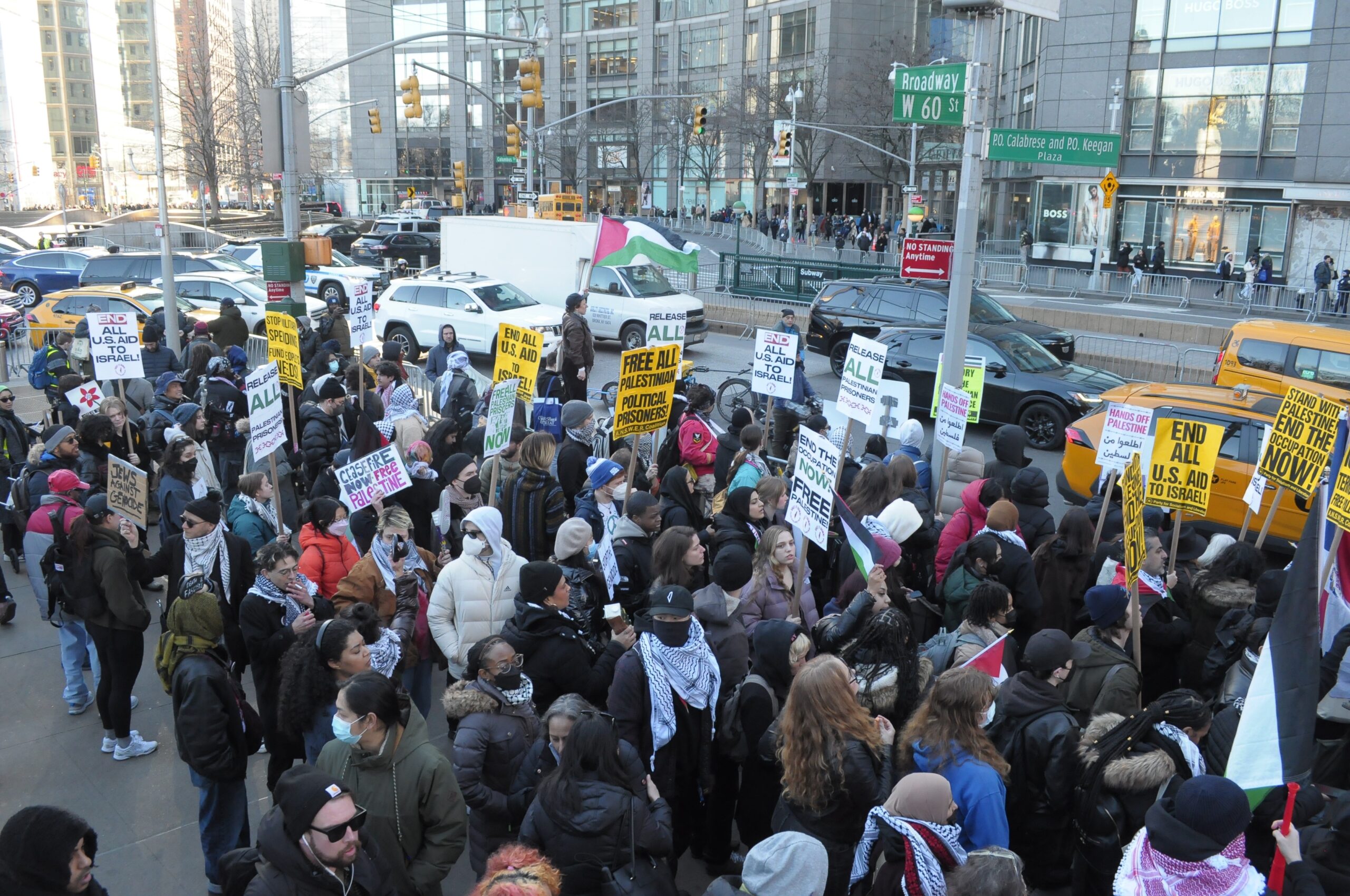
(Photo by Jimin Kim / SOPA Images/Sipa USA)(Sipa via AP Images)
If one were to tear down posters of innocent hostages held captive by a terrorist group and then claim that those hostages are part of a false-flag operation perpetrated by the Israeli government, could that be accurately characterized that as criticism of Israel?
What about if one were make a point of insisting that that no apologies should be made for the terrorists who abducted those hostages and murdered over a thousand more civilians?
The Washington Post headlined a recent article about a prominent social media account called StopAntisemitism, “They criticized Israel. This Twitter account upended their lives.”
“Since Oct. 7, StopAntisemitism has flagged hundreds of people who have criticized Israel’s actions in Gaza. Many were swiftly fired,” read its subheading.
According to that article, “nearly three dozen people” have been “fired or suspended from their jobs after being featured by StopAntisemitism,” which has “dialed up its activity on X since the war.”
“Since Hamas attacked Israel on Oct. 7 and Israel responded by attacking Gaza, groups have poured resources into identifying people with opposing political beliefs, sometimes deploying aggressive publicity campaigns that have resulted in profound real-world consequences,” writes its author, Pranshu Verma. But of the thirty-plus examples he hints at, he only offers two.
The first highlights the case of Dani Marzouca, who mused that “radical solidarity with Palestine means not calling it war” and “not apologizing for Hamas.” She was fired by her employer after that statement was spotlighted by StopAntisemitism.
“Radical Solidarity with Palestine means not calling it war, not apologizing for Hamas…” – Dani Marzouca (bottom)
According to LinkedIn, this Hamas terrorist supporter is your employee @Terakeet pic.twitter.com/AFr3wXWFUn
— StopAntisemitism (@StopAntisemites) January 5, 2024
The second example details Celine Khalife’s experience. Khalife was filmed tearing down posters of the hostages taken by Hamas on October 7.
“These aren’t actually children, these were people that were kidnapped –” began Khalife, before being interrupted by the person filming her, who exclaimed “By Hamas!”
“By Israel, babe!” shot back Khalife.
Chicago, IL – woman claiming Israeli kidnapped their own citizens vs. Hamas while destroying posters featuring the taken has been identified as Celine Khalife.
— StopAntisemitism (@StopAntisemites) November 13, 2023
To its credit, the Post notes that the idea that Israel kidnapped its own citizens is a “false conspiracy theory.” But it still ends the article with a lamentation of Khalife’s plight, which she characterized as “crippling.” She expressed no regret for her actions.
StopAntisemitism’s actions can be fairly scrutinized, as its methods are controversial and raise important questions worthy of public debate. To what extent should one be held professionally accountable for private actions? Has it overstepped in any particularly egregious instances? Would showing its targets more grace be more effective in curbing anti-Semitism?
But these are not the questions raised by the Post‘s article, which claims that StopAntisemitism is going after private citizens for criticizing “Israel’s actions in Gaza.” If that’s so, how did the Post fail to provide even a single example of such a thing happening?
Marzouca defended a genocidal organization that murders, rapes, tortures and hides behind civilians as a matter of policy. Khalife tore down posters of innocent civilians held captive by that same organization while propagating a vile conspiracy theory about their captivity. Neither were punished for merely criticizing Israel’s conduct in Gaza, yet their cases were the closest Verma could come to supporting his failed thesis.
The underlying charge in Verma’s piece is that StopAntisemitism has conflated criticism of Israel with anti-Semitism, but his work betrays the fact that it’s he and his editors who are guilty of such a sin.
This is an opinion piece. The views expressed in this article are those of just the author.






